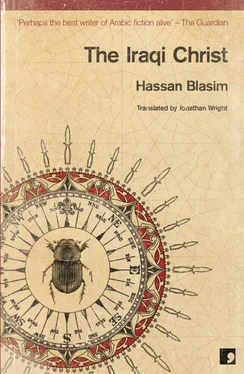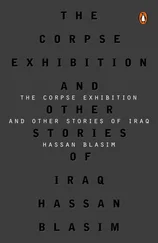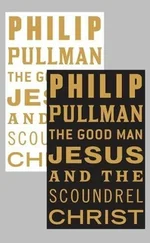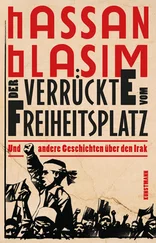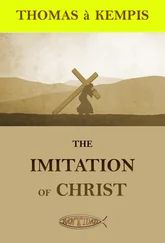It’s been three years since this incident took place. I’m now working in the refugee camp in place of Anisa the Albanian, who has returned to her own country. I work as a translator for the immigration department, and I escort the new quarantine inmates to the hospital every morning. There’s nothing exciting in my life, the same shit and urine problems, the usual refusals to strip off in front of a woman doctor. I wanted to forget my countrymen, and match the rhythm of my life to the slow pace of this border town. I visit the Afghan’s grave from time to time, because he was buried in the town cemetery close to the refugee reception centre. His grave is the only one without a cross. People who visit the cemetery take a look at it out of curiosity, to see the Quranic verse engraved on the headstone. I drink in the bar every evening. I sleep with a woman who works in the flower shop, who loves me very much. I read the newspaper on the internet. Sometimes I cry all night. But for the last few years I haven’t dared visit the prison where Adel Salim lives in the capital, Budapest. Then one day I made up my mind to go and visit him.
The encounter only lasted a matter of minutes.
‘Okay, I don’t understand, Adel,’ I said. ‘What were you thinking? Why did you strangle him? What I’m saying may be mad, but why didn’t you let him drown by himself?’
After a short while, he answered hatefully from behind the bars. ‘You’re an arsehole and a fraud. Your name’s Hassan Blasim and you claim to be Salem Hussein. You come here and lecture me. Go fuck yourself, you prick.’
He blew out a lungful of cigarette smoke and went back to his cell.
On the train back I was bewildered and there was a bitter taste in my mouth. I wanted to sleep but my mind was seething. I tried to put the events of my life in order, but many of them had faded into oblivion: my first meeting with Adel Salim in the south of the country, our plan to escape from the military lock-up, the Iranian border guards who arrested us, the electric-shock torture, meeting the Afghan, the river, Hassan Blasim, the border. The train stopped at a station. I went to the bathroom and when I came back a fat man had taken a seat in the compartment. Next to him he had a small cage with a white mouse inside. He looked up from his newspaper. I greeted him. He nodded and went back to his newspaper.
The train set off and the man put out his hand.
‘My name’s Saro,’ he said. ‘My wife gave me this beautiful mouse. It’s my birthday. Fifty years old.’
‘Salem Hussein,’ I said and shook his hand.
‘That’s strange,’ said the man, examining my face. ‘I’ve read many of your stories. You’re a writer!’
‘That must be someone else,’ I said. ‘I don’t have anything to do with writing. I’m a translator in the immigration department. It’s true I wrote some poems in my youth, but I’ve never written anything else.’
‘Perhaps… perhaps you’ll write something later,’ he said.
He folded his newspaper and added, ‘I was born in the Year of the Mouse.’ He started telling me about the Chinese Zodiac, and said that people born in the Year of the Mouse like to talk about themselves and the way they live. They are very kind but they are also very ambitious, and it’s hard for them to get on with people born in other years. They love debate and their biggest problem is their selfishness. I gathered he had chosen the Year of the Mouse for himself because he was so interested in mice, and not because of his real date of birth. He described the mouse as a gentle and fascinating creature, and we started chatting about mice and their qualities, as the man had extensive experience in all things mouse-related. The conversation led me to expound on my own life and on what had happened with Adel Salim and the Afghan. I started to humour his passion for mice and I told him what I could remember: in my childhood we lived in an area called Air Force Square, close to a military airfield. It was a dirty area teeming with mice, cockroaches and flies. Everyone tried to get rid of the mice, but in vain. My elder sister, like the rest of the women, would set small wooden traps in the kitchen. When a mouse went into the trap it would end up scalded. My sister would boil some water and pour it on top of the mouse — a special form of extermination. It was a horrible death. The smell of boiled mouse hung in the courtyard for more than a day. My grandfather had his own method. He had a long stick at the end of which he had hammered in some nails, and with a quick flick he would hit the mouse, which would start bleeding and make a horrible squealing noise. My sister never accepted this method, because the floor would get spattered with blood and, like the other women in the neighbourhood, she preferred boiled mice to bleeding mice.
‘Permit me to tell you that you’re lying. These are not memories. Doesn’t what you say come from a story called ‘My Wife’s Bottom’?’
‘If you say so, Mr Saro,’ I said, shifting in my seat.
The man looked at me calmly and said, ‘Listen, young man. Can you tell me, for example, who wrote ‘The Killers and the Compass’? It’s the one about the Pakistani kid who finds a sacred compass, and tells how he carried it from Pakistan to Iran, and the rape incident. Your friend Adel Salim killed the Afghan to obtain the compass. It sounds like a riddle or a silly detective story. I’m sure you’ll clear the matter up in another story. Why don’t you write a novel, instead of talking about all these characters — Arabs, Kurds, Pakistanis, Sudanese, Bangladeshis and Africans? They would make for mysterious, traditional stories. Why do you cram all these names into one short story? Let the truth come to light in all its simplicity. Why not enjoy your life?’
‘Mr Saro, I don’t understand what you’re saying. Besides, you’re talking about truth and for a start I hate anyone who utters that word as if he’s a prophet or a god. Maybe you’ve heard of Jalal ad-Din Rumi, the Sufi Muslim who died in 1273. Rumi says, “The truth was once a mirror in the hands of God. Then it fell and broke into a thousand pieces. Everybody has a very small piece of it, but each one believes he has the whole truth.”’
Saro said, ‘I know your friend Rumi but I’ve never heard of him saying that. Listen, mice are colour blind, but they can distinguish shading, from black through to white, and that’s enough to get a grip on some reality.’
Then Saro stopped talking and left me to myself. He took a lump of cheese out of his bag and started to break it up into small pieces, which he threw at the mouse in the cage.
‘Mr Saro, you seem to be a foreigner like me.’ I said.
‘It’s true. I’m from Turkey,’ he said, looking at his mouse.
‘It’s a beautiful country.’
‘Really?’ said Saro.
‘Definitely.’
‘You cursed your time there. You ate shit in Istanbul, as you put it. You worked like a donkey in restaurants and factories for a pittance,’ said Saro.
I examined his face in the hope of uncovering his personality.
‘We didn’t meet in the way you imagine. Everything exists in stories,’ said Saro.
‘We’re going back to the subject of writing again.’
‘Why not? It’s an impressive human activity,’ said Saro.
‘Let me ask you, Mr Saro. Are you interested in literature? Do you write?’
‘No, I’m only interested in the lives of mice.’
The train stopped again. Mr Saro put on his coat, picked up his mouse and left.
Then he came back and stuck his head through the compartment door. ‘Why didn’t you mention your real name in this story?’ he asked. ‘Your friend Rumi said, “There is no imagination in the world without truth.”’
‘Rumi also says, “You saw the image but you missed the meaning,”’ I answered. I wanted to ask him not to leave me on my own.
Читать дальше
